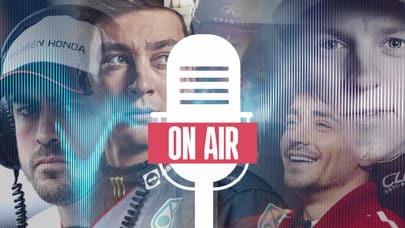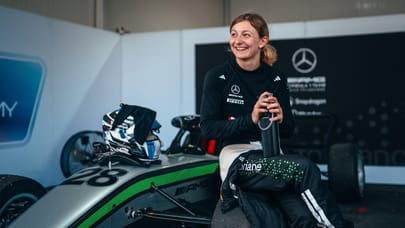

What attracted you to direct Senna?
I've never made a film about a real person before. I knew a bit about Senna and I'm a sports fan, but there was that challenge to make a film about sports as a documentary. If you fictionalise it, it doesn't work. In this way, we didn't cheat; we just showed exactly what happened. Sport doesn't work in fiction, except boxing. Two people punching each other repeatedly is inherently watchable.
Plus, I'd just made a film in the North Pole so the idea of making a film where I'd be stuck in a warm cutting room for a bit seemed good.
Advertisement - Page continues belowWhy aren't there any talking heads in the film?

I don't come from that background of documentary directing, I come from a background in films with often very little dialogue in them. Stories are told through the pictures, and for me that's how you make cinema.
All our footage is television footage, and we needed to do something to make it feel less like TV - talking heads is a classic TV device. Once I started working on Senna, for a long time all I did was cut YouTube clips and make a chronological story. The more we looked, we realised how much of his life was lived on camera, and it seemed the only way to do it.
Plus, the rivalry was so intense at the time, there's no point in people looking back in hindsight when you have the real thing.
How long did it take you to sift through the material?

We spent three years just looking at the material and putting it together, and then another one and a half years working with the editors. Having looked at all this footage, we now know more than the people who were actually there.
What was your initial reaction to all the players after looking at the footage?
When I first saw the footage of Jean-Marie Balestre, I thought ‘you couldn't make this character up if you tried'. And that's the beauty of it, the more we saw of him, the more you couldn't make the story up - that's really what he said at the time.
Advertisement - Page continues belowWhat was it like working with Bernie Ecclestone?

Before I came, the film had been budgeted as half archive and half talking head interviews. My feeling was the whole film needed to be archive. Everyone else was telling me to just go and film some interviews. At some point we had to go back to Bernie and try and renegotiate the deal. But you don't just go to Bernie and say ‘renegotiate'.
For whatever reason, he was massively supportive of us and just said ‘do it'. Without him, there's no movie.
Were there any scenes you just couldn't use?
Hours. One of my favourites was a scene when he was on a Japanese gameshow: he walks out onto a crazy 80s set and the female presenter asks him for his autograph. So then and there Senna signs her shirt, and she lets out a banshee scream, which sets off the audience into a scream, and it was the funniest thing I have ever seen.
Were there any peculiarities in handling the footage?

We've had footage from Brazil, stuff coming from Japan, footage that was on old film, footage that was on formats so hideously out of date nobody had heard of them - ever heard of U-matic?
We had different frame rates, different ratios... it was tough. Technically, some of them looked awful, but it was real - it's not like we could go and reshoot it. However, some of the in car footage breaks up here and there and it looks phenomenally fast. It's also interesting how the technology improves during the film, so there's a technical story happening too. And this was the first film where I've never met any of the cameramen.

Senna writer Manish Pandey confessed to crying. A lot. Did you?
I still cry when I watch it. When he wins in Brazil and he's struggling to lift the trophy, he says to his dad, ‘kiss me gently', and you watch him struggling to get out of the car and see him in pain - if you know how he got there, it's quite emotional. The way he talks about how he won that race with all of Brazil, like ‘we did this'. At that point me and Manish were in pieces.
How would you make a film version of Top Gear?
Can you improve on it already? You couldn't believe some of the things they come out with and some of the things they get up to. I don't think you'd change anything - it's pretty perfect the way it is. Although I might get their teeth fixed.

We've got an exclusive Senna preview DVD specially made for this month's issue of Top Gear magazine, including much more from director Asif Kapadia, never-before-seen clips from the movie and interviews from Alain Prost, Ron Dennis and others.
Read our review of Senna here, and click here to buy the June issue of Top Gear magazine.
Senna hits cinemas on 3 June, 2011.
Advertisement - Page continues below
Trending this week
- Car Review
Renault Clio







